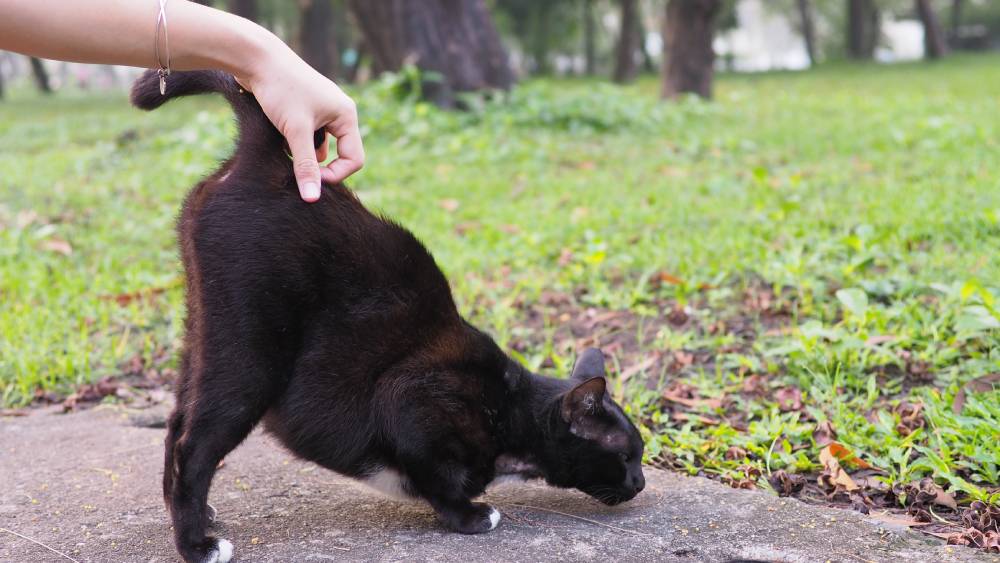Bringing a new pet home, especially a kitten, is exciting. The new addition to your family almost always brings joy to their new family members, but if you already own an older cat, it can be tricky to get them settled with the new kitten. Although it’s normal for a cat to dislike a kitten immediately after meeting it, it’s also normal for them to show aggression and hiss.
Breaking routine is never fun for cats. They enjoy their home and spending time with their people, and new people and animals can cause stress. Luckily, this does not tend to last long. After the cat gets used to the new kitten in their space, it’ll be much calmer around your house. Tensions tend only to last a few days up to a few weeks. Cats can adapt quickly, but it doesn’t mean they like it.
Why Do Cats Hiss at New Kittens in the First Place?
Cats tend to hiss at anything new in their environment to scare it off or frighten it. They also hiss when they are annoyed or in pain. A cat’s hiss is a warning sign for whatever is invading its space to get out. A new kitten is no exception, no matter how small they are!
Cats also love their routine, and if that routine is broken, it may cause hissing. This would happen in any situation. New baby, new kitten, new place, anything can cause hissing when breaking the cat’s routine. Give the cat a few days to settle down and understand that the kitten is part of the family now, and it should warm up soon.

Some cats are aggressive towards other cats due to trauma or another reason. Getting to know your cat before getting another one is essential, as they may be incompatible. If one of them is aggressive towards other cats, that can put the other in danger.
Cats can also feel threatened and trapped in their space, especially if the kitten is cornering them. Whether or not the kitten notices or means it doesn’t matter. If your cat gets trapped or cornered, that can trigger the fight or flight response, resulting in hissing. This fight-or-flight response can be dangerous for both cats, as they can get hurt. Be sure to give your cat space and let it observe the kitten from afar.
 How Do I Introduce a New Kitten?
How Do I Introduce a New Kitten?
The best way to begin is to keep them separate or at least give each of them an escape from the situation if things go south. Perhaps bring them both into a room with an open door, ensuring no cat gets cornered by the other. Allow the older cat to watch from afar, and try not to force an interaction if you feel like you aren’t getting anywhere.
Introduce positive associations with each other, giving both the cats treats separately and perhaps a toy they enjoy. Be sure to do this with each cat simultaneously to ensure no one gets jealous. You can even switch their bedding to help them get used to each other’s scent.
Allowing the cats to leave the situation is very important. If a cat feels cornered, like above, it can trigger fight or flight. If they begin hissing at each other for more than a minute or show signs that they’re about to attack, separate them and put them in separate rooms for the time being until they have calmed down enough.
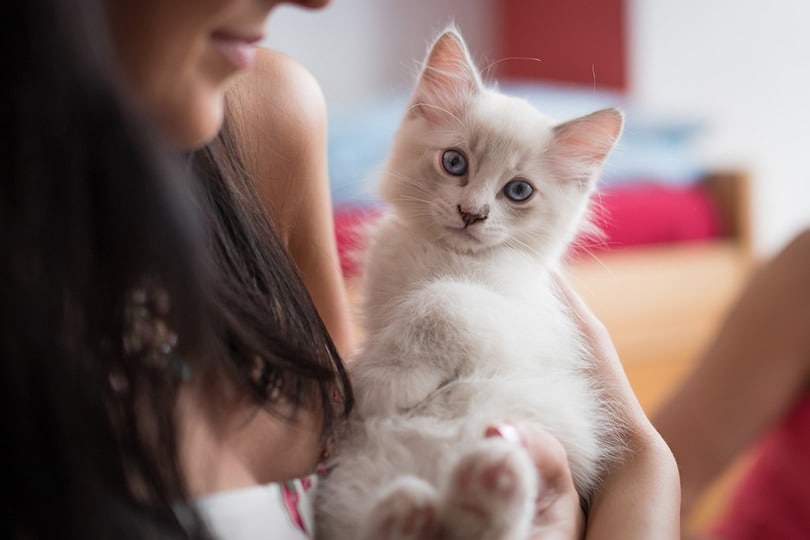
Now that your cat and kitten can freely be near each other without hissing or being aggressive, you can begin to lengthen the amount of time they spend together. Carefully watch them to ensure there is no more hissing or aggressive behavior.
Once you reach about a week of no aggressive behavior, you can stop monitoring them and allow them to live together peacefully. If you notice them attacking each other for multiple weeks, they may be incompatible, and you may have to figure something else out.
How Do I Know It’s Working?
There are a couple of things you can look out for to ensure your cats are getting along well together. First, it is a great sign if they tend to share space, like a room. Space is a resource for cats, and allowing others in their space is one of the best signs. If neither cat is hiding from the other, then it’s a good sign, also.
Eating from the same bowl is also a good sign. You can notice this when you set up multiple bowls for your cat, and they still choose the same one. This is a good sign because it shows that your cats have formed a bond with each other.

Grooming and playing together are two excellent signs to show that your cats are getting along. Cats that are friendly with each other and groom each other. This is a bonding experience for each cat that will strengthen their relationship. If you see them doing this, it’s best to leave them alone for the time being to allow them to have some alone time together and bond.
Sleeping together is the last great sign that your cats are getting along. Sleeping together shows that they trust each other completely. This is the best sign you can hope for. Cats can be generally territorial, and sharing sleeping space can show that they have bonded deeply.
 FAQ
FAQ
How long does it take for a cat to get used to a new kitten?
It can take multiple weeks for the cat to get used to your new kitten, even with a lot of time spent together. Generally, it’s essential to keep track of your cat’s time with the new kitten to ensure they are compatible. Sometimes, cats don’t get along, and it becomes unsafe for both.
If you’re concerned about your cat’s behavior we suggest you speak to a vet.

If you need to speak with a vet but can’t get to one, head over to PangoVet. It’s an online service where you can talk to a vet online and get the personalized advice you need for your pet — all at an affordable price!
Should I let my cat hiss at the new kitten?
Some hissing is usual. Please do not punish the cat for hissing, as it can bring more stress and aggressive behavior. It can cause a negative association with the kitten, making your cat dislike them and feel threatened around them.
Furthermore, if cats are taught not to hiss, they will escalate to violence. You want your cat to hiss, as it can prevent the situation from escalating.
However, if your cat does seem to be hissing a lot, it’s probably time to separate the two cats. Constant hissing signifies that one cat is uncomfortable or the other cat isn’t listening to the warning.
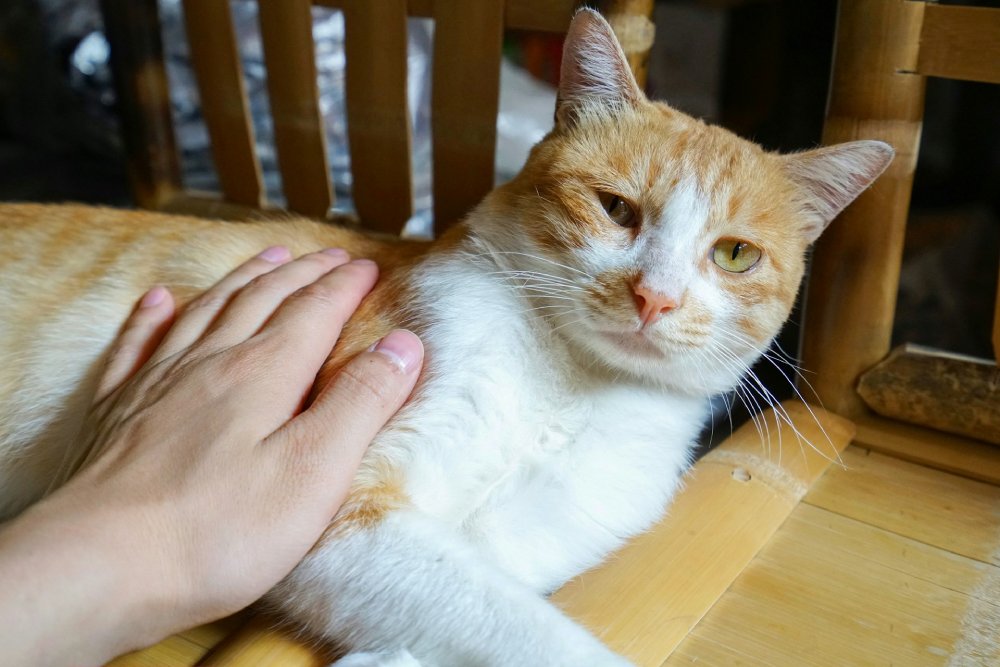
What happens if you introduce cats too quickly?
Introducing cats too quickly can cause excess aggression and stress, increasing the chance of either of the cats getting hurt. If you don’t prepare and don’t give them enough space, it can cause both cats to dislike the other. Once they have their opinion, it can be hard to change it, so be sure you are prepared for the first few meetings with the cats.
Conclusion
Bringing a new kitten home can be exciting, but you need to be careful when introducing your new kitten to your pre-existing cat. You must ensure that the first few meetings are positive events in your cat’s mind to keep both of them safe. If you fail to do so, they can become aggressive and could get injured.
It’s best to give the cats space when first meeting each other to allow them to get used to the new addition to their life. If they become cornered, stressed, or anxious, this can cause the fight or flight response to engage, causing possible aggression.
If your cats are getting along, there are signs to look for, such as sharing space, sharing a food bowl, and sleeping together. These signs can show that your cats are bonded entirely and safely. Once you notice these signs, you can be sure your cats won’t attack each other. Sure, there may be some playful scuffles here and there, but overall, neither of them will get injured.
Featured Image Credit: Irina Kozorog, Shutterstock

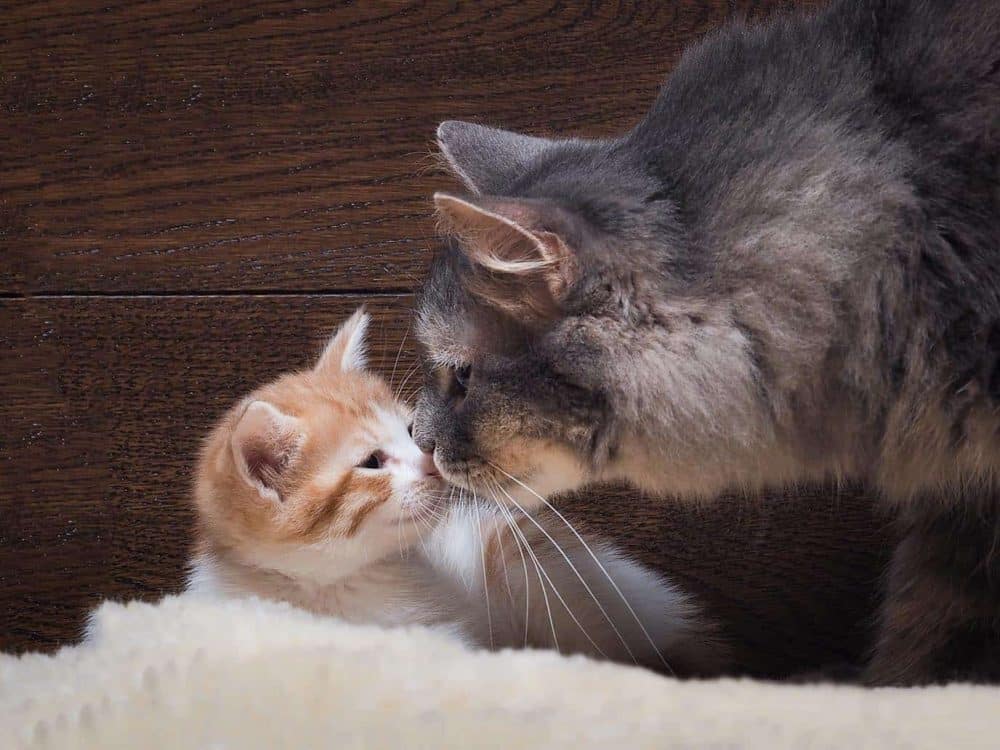
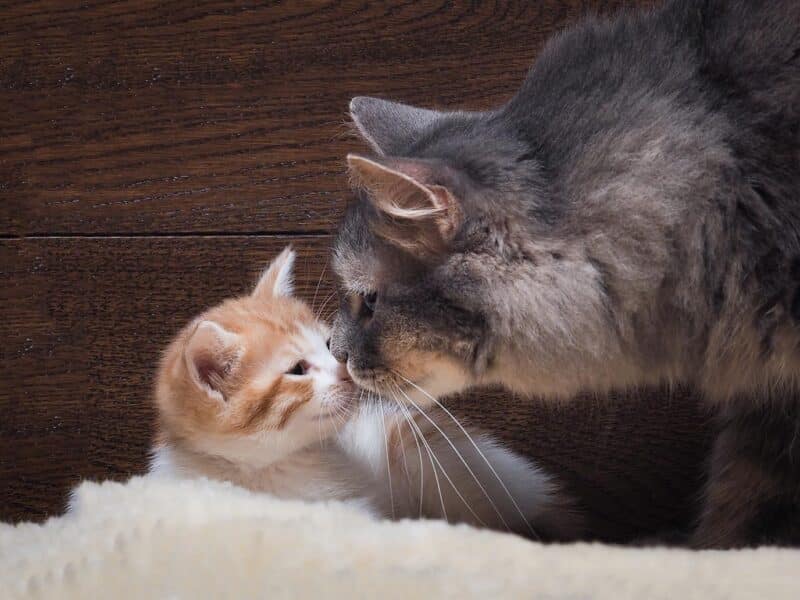

 How Do I Introduce a New Kitten?
How Do I Introduce a New Kitten?

